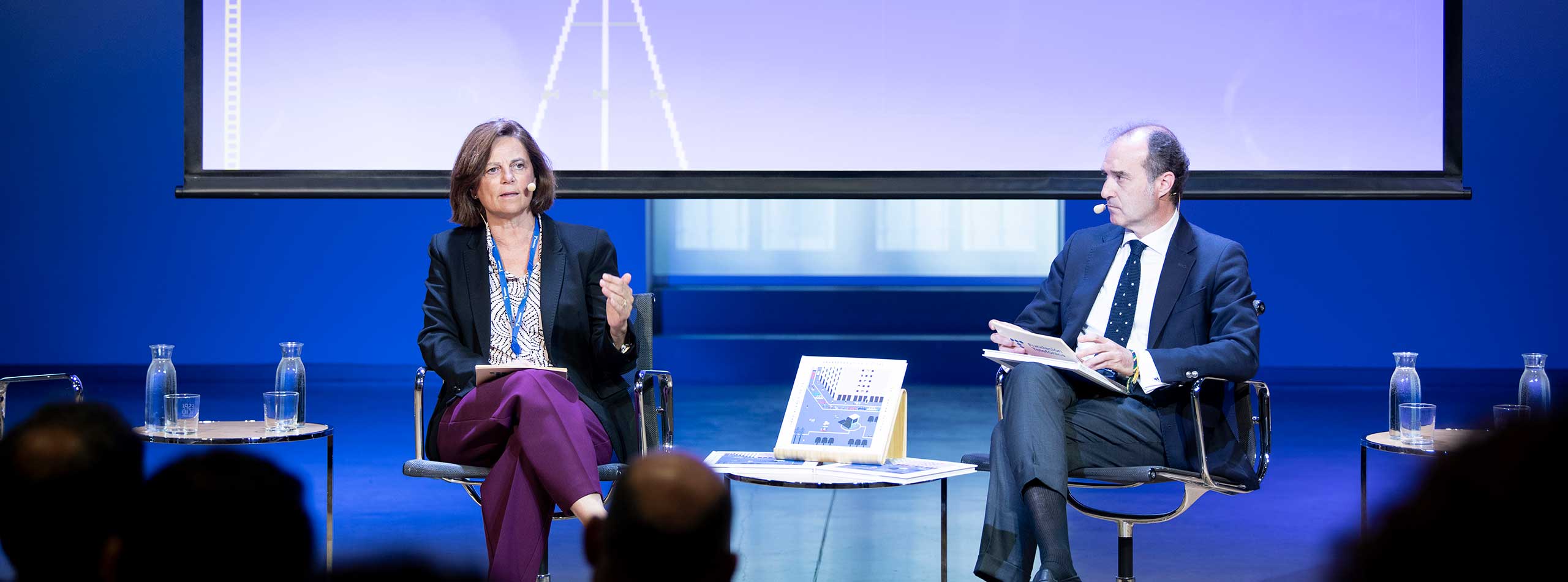01.08.2022
We present the White Paper on the Digital Transformation of the Third Sector
A publication that brings together resources, tools, data, lessons learned and best practices so that any social organisation can understand the value that technology brings and make decisions about its own digital transformation strategy.
We present the White Paper on the Digital Transformation of the Third Sector

The book, in free download (in Spanish)
Fundación Telefónica has presented the ‘White Paper on the Digital Transformation of the Third Sector‘ in the auditorium of Espacio Fundación Telefónica. It is the definitive report that brings together resources, tools, data, lessons learned, best practices and a complete basic guide that serves as a compass so that any social organisation, whatever the size or organisational model, can understand the value of technology and make decisions about their own transformative digital strategy.
The exceptional circumstances in which we live mark a clear path where digitalisation will be present and future in our lives, our employability, our education, our relationships and our health. However, the most vulnerable people in our society are excluded, for different reasons, from many of the opportunities that technology offers to improve their levels of wellbeing. It is key that we reach out to them, digitally strengthening the Third Sector and empowering the people that will experience this process, enabling them to ensure that the impact of their action is greater and to bridge the digital divide for the groups they work with in each field.
The presentation event was attended by Isabel Rodríguez García, Minister for Territorial Policy and Government Spokesperson; Luciano Poyato, Chairman of the Third Sector Platform; Emilio Gayo, Chairman of Telefónica España, Carmen Morenés, Director General of Fundación Telefónica; and Carlos Palacios, Global Director of Social Action and Volunteering at Fundación Telefónica. Meanwhile Raúl Marqueta, director of social action at CaixaBank; Javier García Cañete, Director of Programmes at Fundación Botín; and Jaime Gregori, director of alliances of the Spanish Red Cross, took part in the ‘Digital transformation as the only alternative to remain relevant’ round table.
A tool at the service of social organisations to consolidate a digital strategy aligned with their mission and focused on impact
Isabel Rodríguez García, Minister for Territorial Policy and Government Spokesperson, acknowledged Fundación Telefónica’s initiative to lead the digital transformation of the Third Sector, pointing out “the importance of digital humanism and preventing the digital divide from growing. It is our responsibility, she added, to guide this digitalisation so that it benefits economic, social, national and global development.
Carmen Morenés, Director General of Fundación Telefónica, believes that it is crucial to “digitally empower the Third Sector and the people who make it up, enabling them to have a greater impact and to bridge the digital divide of the vulnerable groups with whom they work. It is essential that all social entities take advantage of the opportunities that this digitalisation offers and continue on the path of change and transformation that has already begun.
PROGRAMME
– 11:00 Opening. Carlos Palacios, Director of Social Action and Volunteering, Fundación Telefónica
– 11:05 Welcome. Carmen Morenés, Director Fundación Telefónica
– 11:10 Project framework discourse: “A Third Sector ready for the big digital push”. Luciano Poyato, Chairman of the Third Sector Platform
– 11:15 Presentation of the White Paper. Carmen Morenés, Director of Fundación Telefónica and Carlos Palacios, Director of Social Action and Volunteering
– 11:35 Table. “Digital transformation as the only alternative to remain relevant”. Moderator: Carlos Palacios, Director of Social Action and Volunteering of Fundación Telefónica
- Raul Marqueta, Caixabank Social Action Department
- Javier García Cañete, Director of Fundación Botín
- Jaime Gregori, Spanish Red Cross Director of Partnerships
– 11:55 “Digital transformation and its impact on the world”. Emilio Gayo, Chairman Telefónica Spain
– 12:05 Closure. “Leaving no one behind: a country’s commitment”. Isabel Rodriguez García,Minister of Territorial Policy and Government Spokesperson.
– 12:15 Closing
Opportunities and challenges of a transformative digital strategy
The ‘White Paper on the Digital Transformation of the Third Sector‘ proposes a path of understanding and guidance, so that each organisation can identify what it needs strategically and how it can undertake its digital transformation process from its own identity and organisational reality, as well as from the social context in which it operates.
A guide that looks at digital transformation beyond the mere application of technology, addressing the challenges and opportunities through a process of understanding how digital reality can transform the way we function and serve people, and how to manage this organisational change in an optimal way, incorporating technology in their daily work to improve the well-being of society.
In relation to the involvement and loyalty of the donors and partners, opportunities range from transparency and accountability to agile ways of participating in organisational actions and processes, while challenges focus on maximising donations, visibility and influence.
As for the beneficiaries, the application of technology can improve the wellbeing of groups with disabilities or dependency, increase the active participation and support networks through digital environments and, of course, increase knowledge and needs for better care. The biggest challenge in this regard is to bridge the digital divide and guarantee the rights of beneficiaries.
If we talk about the role of teamwork and volunteering, technology drives productivity, creativity and innovation, and the big challenge is changing organisational culture and attracting and retaining talent.